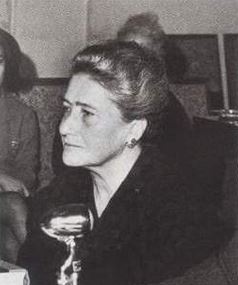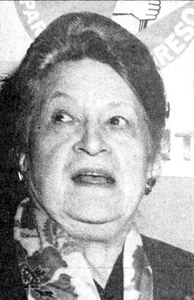Women's suffrage is the right of women to vote in elections. At the beginning of the 18th century, some people sought to change voting laws to allow women to vote. Liberal political parties would go on to grant women the right to vote, increasing the number of those parties' potential constituencies. National and international organizations formed to coordinate efforts towards women voting, especially the International Woman Suffrage Alliance.
Universal suffrage or universal franchise ensures the right to vote for as many people bound by a government's laws as possible, as supported by the "one person, one vote" principle. For many, the term universal suffrage assumes the exclusion of the young and non-citizens. At the same time, some insist that more inclusion is needed before suffrage can be truly universal. Democratic theorists, especially those hoping to achieve more universal suffrage, support presumptive inclusion, where the legal system would protect the voting rights of all subjects unless the government can clearly prove that disenfranchisement is necessary. Universal full suffrage includes both the right to vote, also called active suffrage, and the right to be elected, also called passive suffrage.

The League of Women Voters (LWV) is an American nonprofit, nonpartisan political organization. Founded in 1920, its ongoing major activities include registering voters, providing voter information, and advocating for voting rights. In addition, the LWV works with partners that share its positions and supports a variety of progressive public policy positions, including campaign finance reform, women's rights, health care reform, gun control and LGBT+ rights.

The National Woman's Party (NWP) was an American women's political organization formed in 1916 to fight for women's suffrage. After achieving this goal with the 1920 adoption of the Nineteenth Amendment to the United States Constitution, the NWP advocated for other issues including the Equal Rights Amendment. The most prominent leader of the National Woman's Party was Alice Paul, and its most notable event was the 1917–1919 Silent Sentinels vigil outside the gates of the White House.

The Silent Sentinels, also known as the Sentinels of Liberty, were a group of over 2,000 women in favor of women's suffrage organized by Alice Paul and the National Woman's Party, who nonviolently protested in front of the White House during Woodrow Wilson's presidency starting on January 10, 1917. Nearly 500 were arrested, and 168 served jail time. They were the first group to picket the White House. Later, they also protested in Lafayette Square, not stopping until June 4, 1919 when the Nineteenth Amendment to the United States Constitution was passed both by the House of Representatives and the Senate.

Women's suffrage, or the right of women to vote, was established in the United States over the course of the late 19th and early 20th centuries, first in various states and localities, then nationally in 1920 with the ratification of the 19th Amendment to the United States Constitution.

Ichikawa Fusae was a Japanese feminist, politician and a leader of the women's suffrage movement. Ichikawa was a key supporter of women's suffrage in Japan, and her activism was partially responsible for the extension of the franchise to women in 1945.

A movement to fight for women's right to vote in the United Kingdom finally succeeded through acts of Parliament in 1918 and 1928. It became a national movement in the Victorian era. Women were not explicitly banned from voting in Great Britain until the Reform Act 1832 and the Municipal Corporations Act 1835. In 1872 the fight for women's suffrage became a national movement with the formation of the National Society for Women's Suffrage and later the more influential National Union of Women's Suffrage Societies (NUWSS). As well as in England, women's suffrage movements in Wales, Scotland and other parts of the United Kingdom gained momentum. The movements shifted sentiments in favour of woman suffrage by 1906. It was at this point that the militant campaign began with the formation of the Women's Social and Political Union (WSPU).

The International Alliance of Women is an international non-governmental organization that works to promote women's rights and gender equality. It was historically the main international organization that campaigned for women's suffrage. IAW stands for an inclusive, intersectional and progressive liberal feminism on the basis of human rights and liberal democracy, and has a liberal internationalist outlook. IAW's principles state that all genders are "born equally free [and are] equally entitled to the free exercise of their individual rights and liberty," that "women's rights are human rights" and that "human rights are universal, indivisible and interrelated."

Women's suffrage in Canada occurred at different times in different jurisdictions to different demographics of women. Women's right to vote began in the three prairie provinces. In 1916, suffrage was earned by women in Manitoba, Saskatchewan, and Alberta. The federal government granted limited war-time suffrage to some women in 1917 and followed with full suffrage in 1918, at least, granting it on same basis as men, that is, certain races and status were excluded from voting in federal elections prior to 1960.

Women in Paraguay face challenges to their rights. Faced by socioeconomic inequalities and gender pay gap, they experienced significant cultural changes since 1990 as a result of constitutional and legal expansions of women's rights and evolving cultural attitudes. The legal and government institutions currently existing in Paraguay were developed in part through the efforts of feminist organizations in the country that held significant awareness-raising campaigns during the 1990s to formalize the guarantees of women's rights. UN Women supports the Paraguayan State in the challenge to extend women's rights, to fight for gender equality, as well as women's empowerment. It also ensures that women's voices are heard and create more opportunities for women.

Lucila Rubio de Laverde (1908-1970) was a Colombian socialist and one of the leading suffragettes in her country. She was also a teacher and the first woman to present a demand for the vote to the President of Colombia.

The Inter-American Commission of Women, abbreviated CIM, is an organization that falls within the Organization of American States. It was established in 1928 by the Sixth Pan-American Conference and is composed of one female representative from each Republic in the Union. In 1938, the CIM was made a permanent organization, with the goal of studying and addressing women's issues in the Americas.
Graciela Quan Valenzuela was a Guatemalan lawyer and activist. She campaigned for women's suffrage, writing a draft proposal for Guatemala's enfranchisement law. She was also a social worker, adviser to the President of Guatemala, delegate to the United Nations and the President of the Inter-American Commission of Women.
Rosa Amelia Guzmán was a Salvadoran journalist, feminist and suffragette. Her 1950 speech to the Constituent Assembly was instrumental in women gaining, not just the right to vote, but the rights of citizenship on 14 September. She was one of the first four women elected to serve in the Legislative Assembly of El Salvador.

María Currea Manrique was a Colombian feminist, suffragist, politician, nurse and journalist. She was instrumental in pressuring for laws in Colombia which recognized women's right to citizenship, education, and enfranchisement. She was honored as the 1960 "Women of the Americas" by the Organization of American States and received many awards and honors during her lifetime. She was posthumously honored with an award distributed bearing her name each March 8 in honor of International Women's Day to the Colombian woman who has excelled in promoting women's rights in her community.
Women's suffrage in Colombia was introduced in 1954. The reform was introduced during the military dictatorship of Gustavo Rojas Pinilla.
Union Femenina de Colombia (UFC), was a Colombian women's rights organization, founded in 1944. Alongside the Alianza Femenina, it was one of the two big women's organizations campaigning for women's suffrage in Colombia.
Unión Femenina Guatemalteca Pro-ciudadanía, was a women's organization in Guatemala, founded in 1944. It played an important role in the campaign for women's suffrage in Guatemala.











